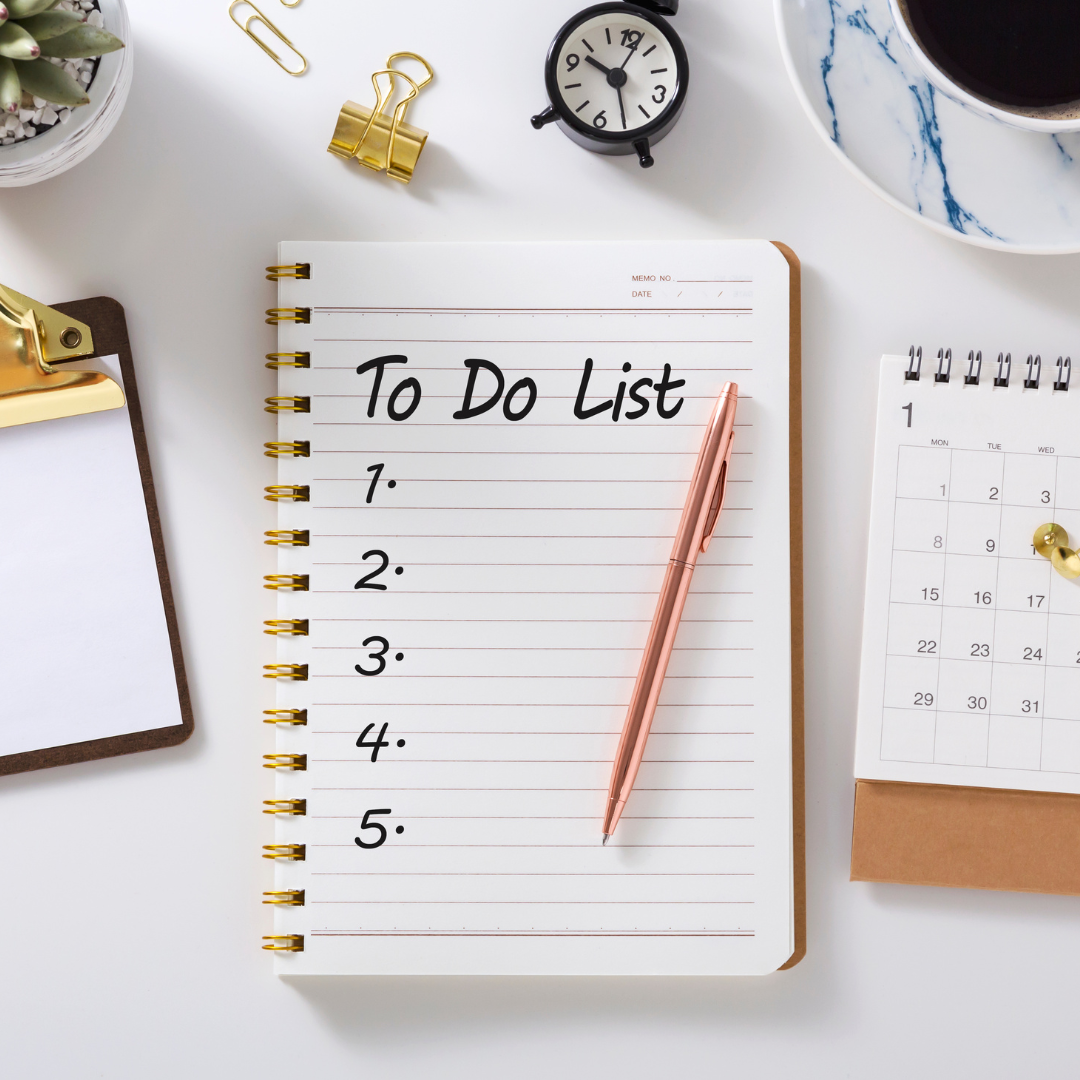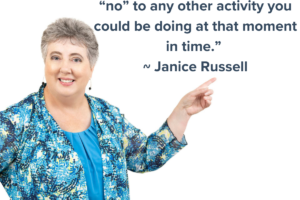
Struggling to Complete Your To-Do List? Try These 5 Tactics
Do you have OOPS disorder?
I’m not referring to “oops” like “Oops, I forgot x!” or “Oops, I didn’t do y!”
It’s a challenging condition that appears as a way to move forward and get tasks accomplished. When in reality, it often leaves sufferers depleted and feeling bad about themselves.
OOPS is the Overly Optimistic Planning Syndrome.*
While you may not recognize the name, it’s my guess that you’ve experienced it. It happens when you decide that between dinner and bed you’ll pay all your bills, reorganize the file drawer, and clean the refrigerator. Or when you have back-to-back meetings and still need to start a presentation that’s needed for the 3:00 p.m. meeting. Or when it’s 8:00 p.m., you have a flight to catch in the morning, yet you still have to do laundry, pack, and write directions for the pet-sitter.
Here’s how it showed up in a client impacted by ADHD and several physical issues.
One Friday she set a weekend goal to organize and clean her kitchen and the main bathroom. She was very excited to reclaim these rooms and be able to use them for their intended purposes, without the impact of extra stuff or having items in the wrong locations.
On Monday, nothing had changed in either the kitchen or the main bath. She was talking down to herself: “I can’t believe I couldn’t get it done; I had the whole weekend.” She felt like there was no light at the end of the tunnel: “Not only didn’t I take care of the kitchen or bathroom, but I still have magazines to read and some papers to file. Not to mention ….”
Clearly OOPS had evolved into the state of feeling OOPSied because Overly Optimistic Planning Syndrome created immobilization, exhaustion and discouragement. Overwhelm by the size of the task led to paralysis – where and how to start the task. This all fed into feelings of distress and disillusion, “I won’t ever be organized.”
With coaching, she moved from OOPS to OOPSied to ACTION.
How did it happen?
-
PERSPECTIVE SHIFT. First, the spaces didn’t get cluttered overnight and so they weren’t going to get organized overnight – or even during a weekend. In addition, some of her physical problems impacted her energy and ability to work on activities for long periods of time. Second, the kitchen and bathroom were each a project made up of multiple small tasks. She recognized that organizing these areas was a process that would take time.
-
TIMESLOTS. “The weekend” seems like plenty of time to whip the kitchen and bathroom into shape, right? However, without evaluating all activities planned for the weekend along with estimating an amount of time for organizing, a weekend can draw to a close very quickly. So she began to look at her calendar and decide specific days and times that she would work on these spaces.
-
VARIATION. The attention issues of ADHD and the stamina problems of her physical conditions necessitated changing activities on a regular basis. From a physical standpoint, tasks needed to vary between standing and sitting. The distraction factor of ADHD meant it was helpful to have easier to-do’s between decision-intensive ones.
-
ALERTNESS. The simplest way to make hard obligations easier is to ensure proper rest, nutrition, and hydration. Since it’s common for someone diagnosed with ADHD to experience problems in these self-care areas, I helped her design ways to manage her sleeping, eating, and water drinking more consistently.
-
ACCOUNTABILITY. One of the greatest benefits of coaching is the built in accountability. As the client put everything in place, she and I established accountability including texts and rewards.
Step-by-step she created more space in her kitchen by moving some objects to the area between the top of the upper cabinets and the ceiling. This allowed her to put some “homeless items” into the newly created spots in the cabinets.
How? She created smaller tasks and then timeslots for those assignments. For instance, she moved objects to the “higher territories “between 6:00 p.m.-7:00 p.m. one weeknight. On a different night she put all pots and pans into the newly created space in the cabinets. Another time she deleted expired food. Then stored food that had been on the counter. It was important to break down the project into doable undertakings and to schedule time in her calendar for each job. These two small operational changes helped move her from overwhelm to whelm. She felt the task was doable.
You might suffer from OOPS if you consistently find it challenging to complete tasks and meet deadlines.
Want to stop feeling OOPSIED? Try one of the five tactics.
I’d love to know which tactic you’ll try first.
Let me know below. I want to cheer you on!
Don’t let OOPS negatively affect your ability get tasks done!
* This is identified in Co-Active Coaching by Henry Kimsey-House, Karen Kimsey-House, Phillip Sandhal, & Laura Whitworth.



